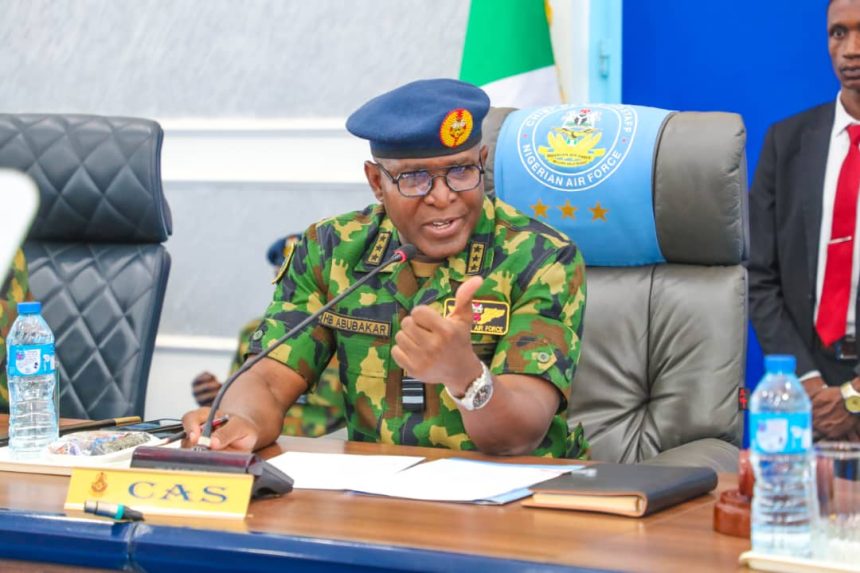By Linus Aleke, Abuja
The Nigerian Air Force (NAF), on Thursday, announced its desire to join the league of fuel importers in the country.
The Hierarchy of the Service, intimated the House of Representatives Committee on Air Force, of its decision to commence importation of aviation fuel to enable it maintain its operational activities, when the Chairman of the Committee led its members to NAF headquarters on overnight visit.
The Chief of the Air Staff (CAS), Air Marshal Hasan Abubakar, said, that one of the pressing challenges militating against NAF’s effectiveness is the astronomic rise in fuel prices and the introduction of surcharges.
“Currently, the situation is worsening as the cost of Jet A-1 fluctuate at almost N1,200 per litre as against the budgeted N360 per litre. We are soliciting that the NAF be permitted to independently commence the importation of Jet A-1 fuel to sustain our ongoing air operations,” he said.
This is as the CAS, said that poverty, joblessness and high cost of living is responsible for spike in insecurity in the country.
“These situations, have been exacerbated as more Nigerians slip into poverty, occasioned by lack of jobs amid high cost of living, causing some to turn to crime,” he said.
Director of Public Relations and Information, Nigerian Air Force, Air Vice Marshal Edward Gabkwet, in a statement said that the CAS told the law makers that Nigeria’s security environment, is fluid, and unpredictable.
Air Marshal Abubakar, he said, had brought the members up to speed on Nigeria’s current security environment, which remained fluid, dynamic and unpredictable.
According to him, “While terrorists’ activities in the Northeast and Northwest Nigeria have declined, we have in recent times witnessed an escalation in the rate and frequency of kidnappings and hostage-taking by these same criminals in the region. The recent coordinated spade of kidnappings of over 200 school children in Kaduna, 15 students in Sokoto and several others in Borno States are clear pointers to this fact”.
The CAS, also noted that in the southeast and south-south region, the threats posed by secessionists and oil thieves, though on the decline, have also been a source of concern.
Other challenges enumerated by the CAS include the need to enhance NAF’s tactical airlift capability to support both land and maritime forces in various theatres of operations as well as disaster relief efforts in remote areas, the need for an air operations command and control infrastructure as well as the need for an enhanced Air Defence and Airspace Surveillance capabilities, among others.
Despite these challenges, the CAS noted, the NAF has continued to embark on a wide range of intensive air operations, including Intelligence Surveillance Reconnaissance, Air Interdiction and Armed Reconnaissance across operational theatres in the country, with varying degree of successes.
These successes, he said, were made possible due to the unwavering support of the President Bola Ahmed Tinubu, as evident in the recent acquisition and induction of various platforms with the most recent being the induction of 2 x T-129 ATAK Helicopters.
The Chairman, House of Representative Committee on Air Force,
Hon. Kabiru Alhassan Rurum, said, the visit, which was in line with the provisions of sections 88 & 62(1) of the Constitution of Federal Republic of Nigeria (as amended) and Order Twenty (B) 13 of the Standing Orders of the 10th House of Representatives, was aims at nurturing a robust relationship between the NASS and the NAF.
He said, the Committee stands as a beacon of support and intervention as matters concerning budget allocation and implementation, policy amendments, public perception, transparency and community engagement will be brought to the forefront for discussion, understanding and possible legislative action.
According to the Chairman, “Through an open channel of communication and collaboration as well as understanding the current status and challenges faced by the Service, we can collectively explore avenues to strengthen NAF’s operational capacity”.











